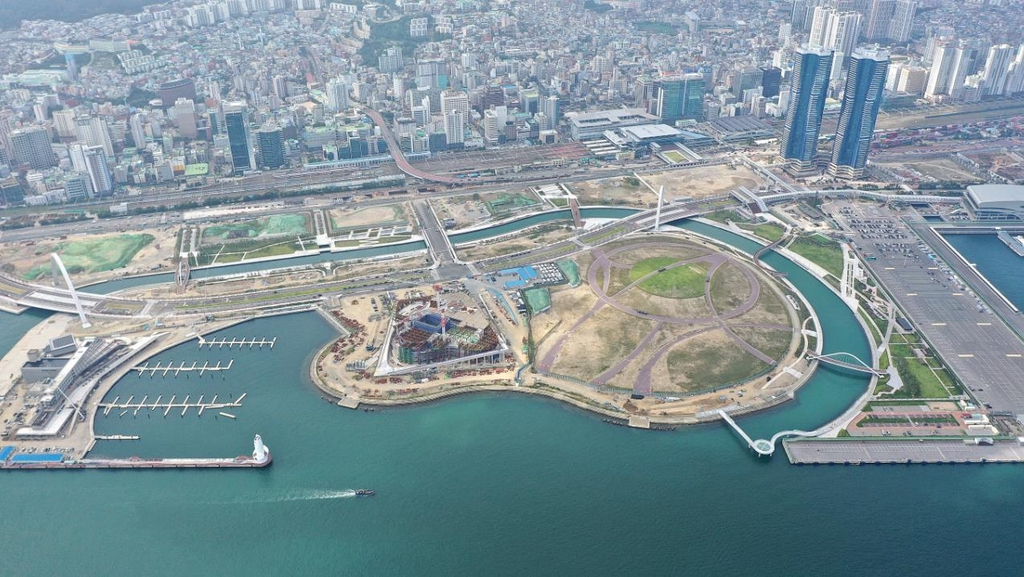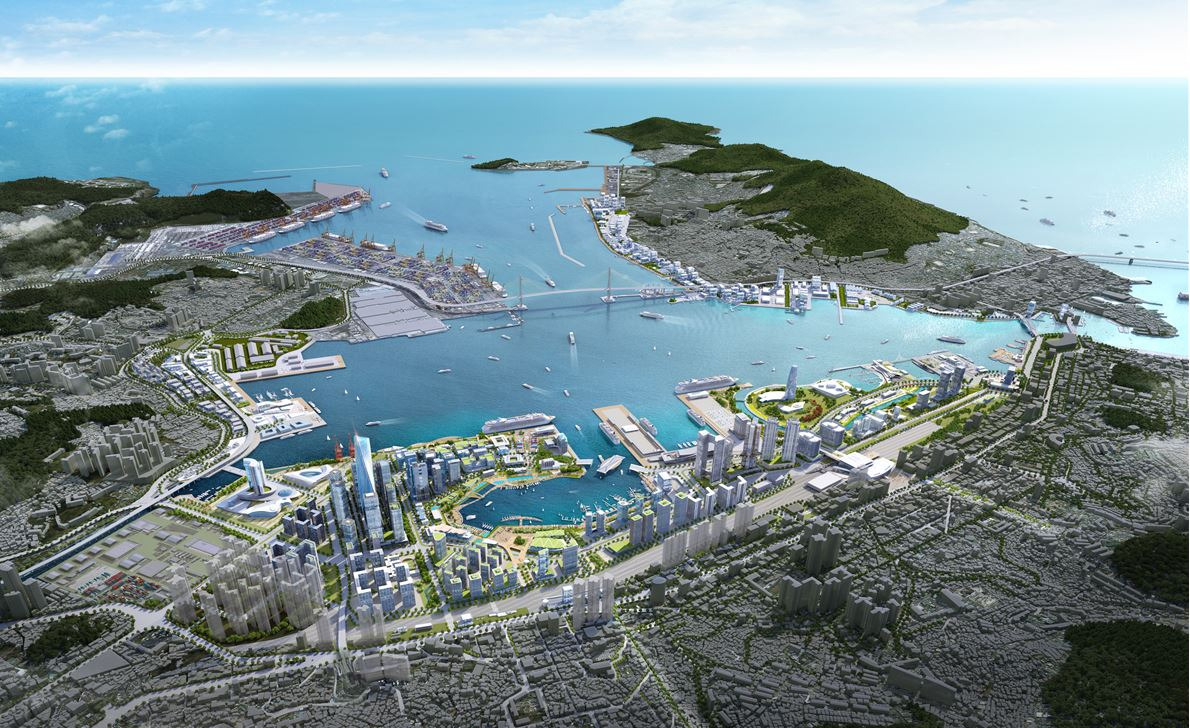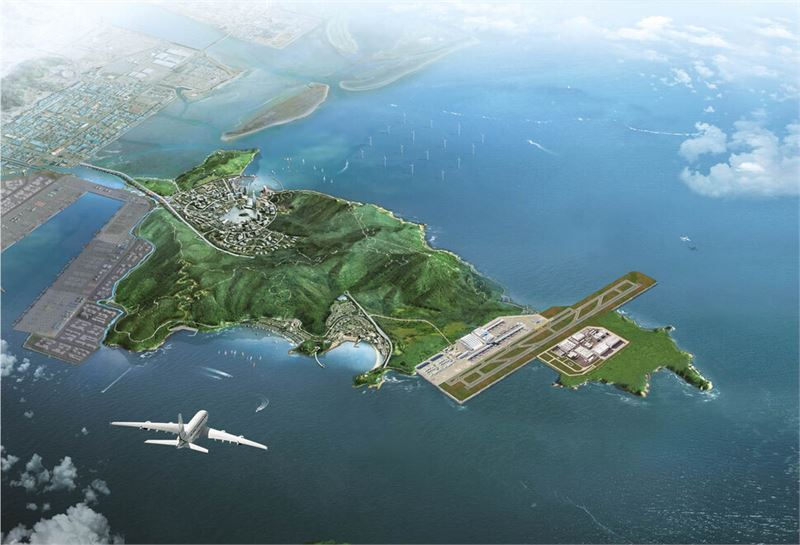 |
This photo shows Busan's proposed World Expo site, where the construction of structures like an opera house are underway. (Courtesy of Busan Port Authority) |
A group of 18 lawmakers led by Democratic Party of Korea Rep. Park Jae-ho proposed a resolution on March 15, earning a parliamentary nod Monday, to enable the "immediate" passage of a special bill designed for organized financial and policy support, recognizing Busan's World Expo bid as a key national agenda.
The resolution also stipulates the National Assembly's active support to improve Busan's transportation infrastructure by increasing public access to the proposed World Expo site -- an old sea port -- by refurbishing the surrounding area. The resolution also supports drawing up plans to help participating countries build pavilions and transitioning the site into a free economic zone after the mega event.
The resolution, which passed unanimously on Monday, was delivered by National Assembly Speaker Kim Jin-pyo to the Bureau International des Expositions (BIE) delegation, led by BIE Administration and Budget Committee President Patrick Specht.
"The World Expo 2030 would be the most monumental event Korea is capable of hosting in the next 10 or 20 years to come, having an immense impact on (Korea's) economic, cultural and diplomatic front," read the statement and resolution by the special committee.
"(The World Expo) will internally expedite the convergence of Busan, Ulsan and more cities of South Gyeongsang Province into a metropolis, contributing to balanced national growth, and externally help Korea play a leading role in addressing the global agenda such as the climate change and the fourth industrial revolution."
From March 26 to 28, special committee lawmakers led by Park formed a delegation to meet representatives of the 2025 Osaka-Kansai World Expo to be briefed on the progress of the upcoming World's Fair. The delegation aimed to seek expertise on the transformation of the World Expo site back to normal operations, 55 years after Osaka hosted its first World Expo in 1970.
According to a recent statement by the delegation, Korean lawmakers there were advised to seek economic ties with countries who hold voting rights in the Expo election in November, as well as to set the stage for solving the crises facing humankind in the 21st century through the World Expo.
 |
A bird's-eye view of the redeveloped North Port in Busan (Busan Metropolitan Government) |
Korea's parliament has a history of passing special bills in the years leading up to the hosting of major sporting events like the Seoul Olympics in 1998 and the Korea-Japan World Cup in 2002. Both events were aimed to deregulate measures over land use and offer organizers easier access to the state budget.
In addition to the proposed bill, a separate bill urging the swift construction of a new Busan airport in Gadeokdo has been in effect since December. The bill is designed to make the airport a key international transit hub in lieu of Gimhae Airport, with the goal of starting operations in December 2029, six years earlier than initially planned. A revision was passed on March 30 which will accelerate the land compensation process to land owners on the airport site.
Such legislative moves will be crucial for organizers, as the proposed 3.4 square-kilometer World Expo site is neither fully vacated nor under the full control of the organizers.
Busan also aims to relocate railways and train stations, as well as introducing a hydrogen-powered transportation system to take their place.
 |
A bird's-eye view of the proposed airport site in Gadeokdo, Busan (Busan Metropolitan Government) |
While organizers are looking to use the Busan North Port site to host exhibitions and pavilions, some of the piers and container yards are currently under operation.
Cho You-jang, director general of the 2030 Expo Bid Promotion Headquarters under the Busan Metropolitan Government, told reporters earlier in March that a smooth transition of the port is underway.
For example, Jaseongdae, a container pier which handles about a quarter of North Port's total container traffic, will relocate to the piers on the headland in 2024. Another small pier harboring government-owned ships will move to Yeongdo, an islet jutting out into the sea.
The related legislation should be in place beforehand to ensure the relocation and transition of more piers and an off-dock container yard, according to Cho.
Meanwhile, the new bill is also expected to accelerate the process of turning the proposed World Expo site into a free economic zone after its 6-month run in 2030.






![[Today’s K-pop] Blackpink’s Jennie, Lisa invited to Coachella as solo acts](http://res.heraldm.com/phpwas/restmb_idxmake.php?idx=644&simg=/content/image/2024/11/21/20241121050099_0.jpg)
